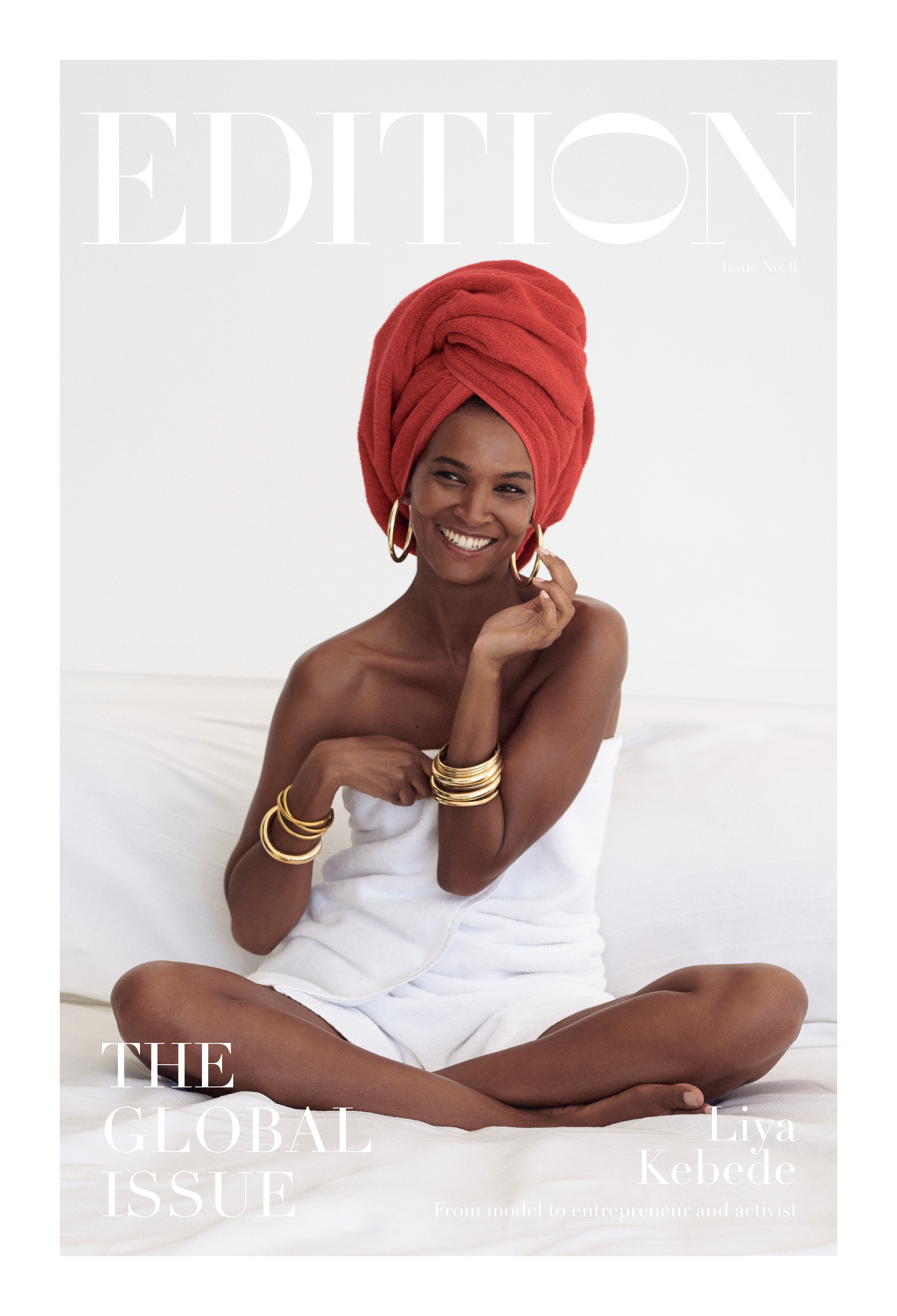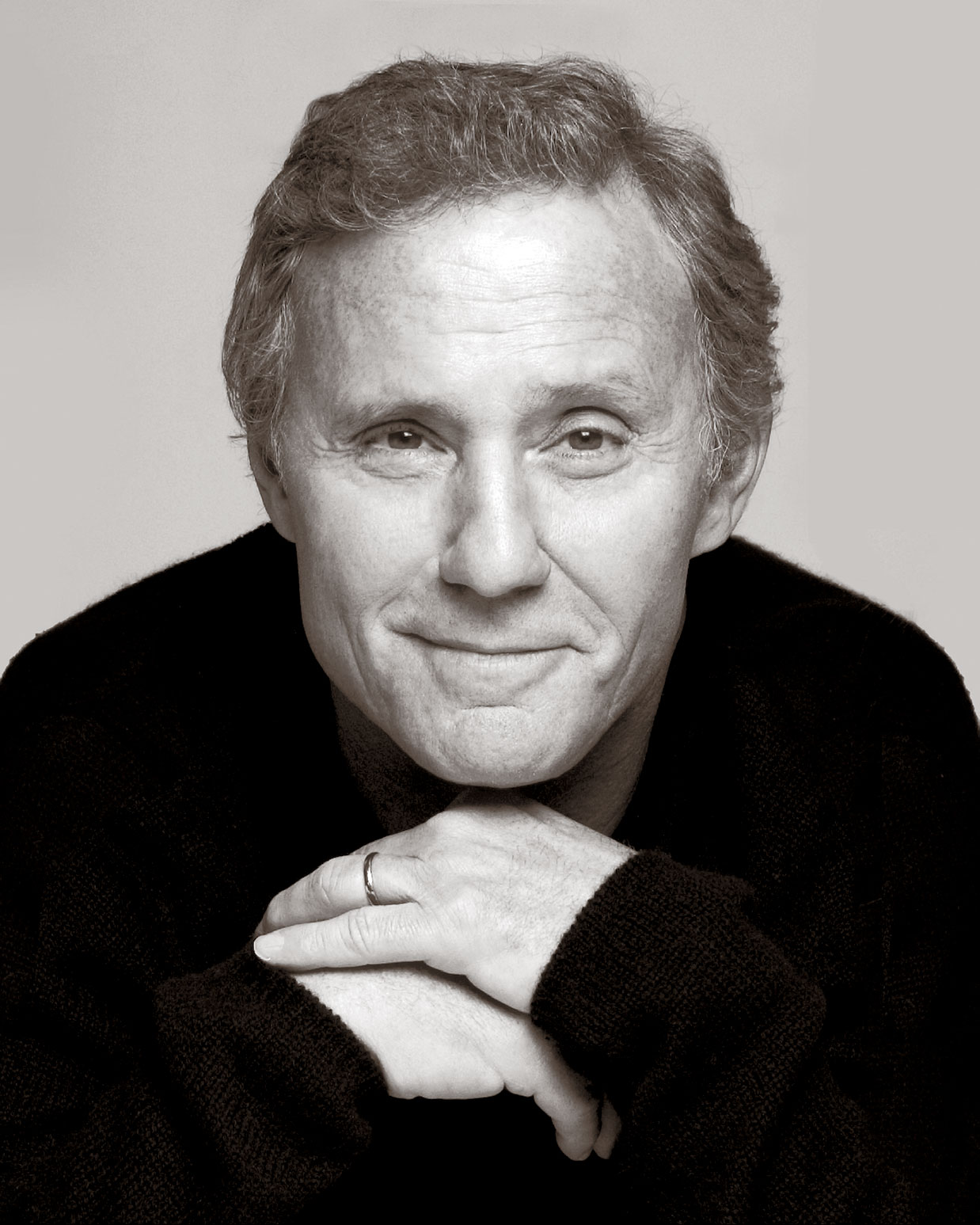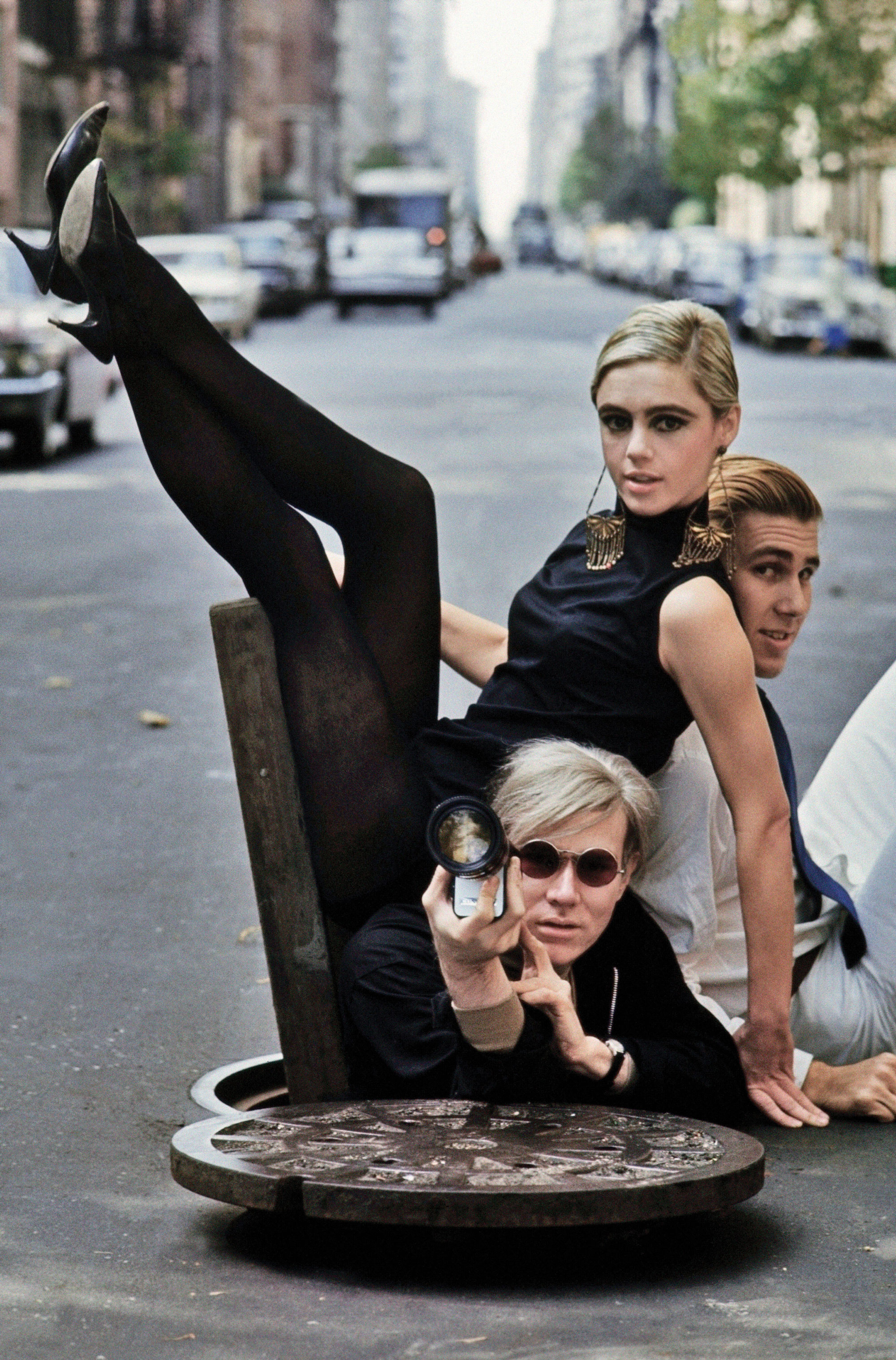
Global Issue
Global Issue: Editor’s Letter
Editor’s Letter
John Fraser
The Michelin-starred chef has a story to tell you through his cooking
Pundy’s Picks for Conscious Travel
Six tips for considered and conscious travel
Genmaicha Martini Recipe
The classic martini plus the health benefits of green tea
The Spread Love Project by Nicholas Konert
How Nicholas Konert’s rainbow heart design became an international icon
Wade Davis
Anthropology is the antidote to today’s nativism says the scholar and author
Carla Sozzani
The future of retail according to the founder of legendary concept store 10 Corso Como
The Art of Migration
The power of art to inspire empathy and social action
John Pawson
Zen Buddhism and minimalist purity drive the celebrated architect
Amy Duncan
As the CBD line Mowellens expands into skincare, its founder shares the personal story behind her company
Sila Sveta
Moscow’s favorite media studio finds the perfect balance between art and commerce
David de Rothschild
In his calls for environmental awareness, the modern explorer finds harmony between man and nature
Can Fashion Be Sustainable?
Shaping a better world through what you buy – or don’t
Brendon Babenzian
Supreme’s former creative director wants to end the cycle of consumption with his new brand Noah
Lily Kwong
Nature invades the urban jungle in the landscape designer’s expansive projects
House of Yes
Behind the scenes with the Bushwick nightlife collective promoting inclusivity and consent culture
Vivie-Ann Bakos
DJ Extraordinaire
Chez Dede
A medium in which two world-traveling, adventurous spirits absorb the globe’s vast curiosities and share them freely
Jesse Israel
A meditation guide for extraordinarily large groups
Liya Kebede
The Ethopian model, activist, and entrepreneur uses her label Lemlem as a force for change

![]() an Schrager has been behind some of the world’s most renowned and well-designed places to sleep, drink, and dance, dating back to the iconic Studio 54, which launched a new era of sophisticated hedonism, mixing celebrity glitz with the outlandish underground. He then pioneered the concept of the boutique hotel, turning travel into an art form, and has gone on to open countless hotels and residences. In the process, he has democratized luxury and made the exclusive inclusive. Schrager’s latest is EDITION, a partnership with Marriott, and his newest concept is Public, a 367-room hotel in lower Manhattan. With EDITION opening in over half a dozen new cities this year alone, there’s no slowing down for this master of reinvention and expansion. EDITION’s VP of brand experience Ben Pundole caught up with Ian in his Manhattan office to learn about how he’s been behind the next big thing for nearly half a century and what turns a hotel into a destination.
an Schrager has been behind some of the world’s most renowned and well-designed places to sleep, drink, and dance, dating back to the iconic Studio 54, which launched a new era of sophisticated hedonism, mixing celebrity glitz with the outlandish underground. He then pioneered the concept of the boutique hotel, turning travel into an art form, and has gone on to open countless hotels and residences. In the process, he has democratized luxury and made the exclusive inclusive. Schrager’s latest is EDITION, a partnership with Marriott, and his newest concept is Public, a 367-room hotel in lower Manhattan. With EDITION opening in over half a dozen new cities this year alone, there’s no slowing down for this master of reinvention and expansion. EDITION’s VP of brand experience Ben Pundole caught up with Ian in his Manhattan office to learn about how he’s been behind the next big thing for nearly half a century and what turns a hotel into a destination.
What was missing in the hospitality industry that led you to develop the concept of the boutique hotel, with Morgans in the ‘80s?
When I went into the hotel business with Steve [Rubell], back in theearly ’80s, there was no hotel that I really wanted to stay in. There was no hotel that manifested who I was or my popular culture, that spoke to my generation. They were all hotels for my parents. It wasn’t as if I was rejecting these hotels, I just wanted something that I felt comfortable in and which was consistent with my lifestyle. A new kind of hotel…younger, fresher, original.
Hotels have become hubs for our new, global, creative culture. How were you able to make this happen? And what’s on the horizon?
I think that the one thing hotels have to do— and that they kind of lost along the way, which gave me my opportunity—is to provide a communal space in the lobby. Which is a new kind of gathering place and a beehive of activity that makes the hotel more than just a place to sleep. It makes it a kind of manifestation of the social fabric of the city that it’s in. Hotels used to be like that. Hotels like the Plaza in New York over 100 years ago, where we had our big events, our weddings, our business meetings, and we went to eat dinner there because it was
the best restaurant in town. It was at the very center of culture. We lost that over the years. So that was my opportunity: to come back in there and try to do something that appeals to people that are in the know and really appreciate the effort we make. A hotel for people who live in the city, as well as those who visit. That is the key.
How has the concept of luxury changed over the decades since you launched your first property?
The concept of luxury has completely changed over the decades, the way everything else has changed. Automobiles, kitchen appliances, fashion, and music— everything changes, so of course the notion of luxury also must change and evolve. The accessibility to wealth is much more pervasive then it once was, so the very foundation and idea of luxury is different and needs to accomplish something other than what it did before, which was really just to convey status to the wealthy. It is much more and much different today.
What do you think about the current state of celebrity? Who is glamorous to you in 2018?
For me the “age of celebrity” has become a sad parody of itself. I was part of it when it first got started in the ’70s, in and around Studio. But at that time people had to do something, had to accomplish something, and that was what made them a celebrity. You jump forward all these years and currently, right now, people become celebrities for reasons that I can’t fathom. They haven’t done anything, they haven’t accomplished anything, but yet they become celebrities. Then they try to figure out some way to cash in on it and make a lot of money. It doesn’t make any sense to me.
You recently came out with a tome about Studio 54. How did you feel revisiting such an epic time in your life, when creating the book?
It took me 40 years to finally feel comfortable to talk about and do the Studio 54 book. I’m not a person who likes to dwell in the past or think about the past. I’m always looking forward, moving forward, always interested in what my next thing will be. But it’s been such a phenomenon that, 40 years later, people who weren’t even born seem fascinated by what went on at Studio 54. I just felt it was time to bring it to the public. It wasn’t an intellectual decision, it was an instinctive one. If the hunter doesn’t tell the story…the lion will.
There were a lot of wild, perhaps life-changing nights at Studio 54. What was your most memorable night there?
There were a lot of memorable evenings at Studio 54. It was like holding on to a lighting bolt. Everyone always remembers the first time they’ve done something, and I remember the first night we were open more than any other. I received a phone call from Steve at about 6 a.m. telling me that we were on the cover of the New York Post. This was something unheard of and which never had been done before: to appear on the front page of a daily newspaper for the opening of a nightclub. Of course, I remember many other private events—too many to mention.

You can’t kill that social urge to meet people, to have fun, and to dance. It was with us thousands of years ago when civilization began, and it will be with us until we cease to exist.

What are the ingredients that make a hotel a destination and a cultural landmark?
What makes a hotel iconic and [turns it into] a destination is having a unique, original experience that lifts the spirits. That touches you in some personal, emotional, and visceral way. It’s very hard to put that in a box or definition. It’s like when you’re in a special place with a lot of excitement: we all know it when we see it, but it’s very hard to explain or categorize it.
When you go to someplace special that offers something you’ve never seen before, it makes you feel a certain way. It makes your heart beat faster…adrenaline starts flowing. It goes back to that feeling you had when you were a child, when your eyes filled with wonderment and you were just completely energized and enthusiastic about something. That is what we try to accomplish when we create a hotel. It’s more important the way a hotel makes you feel rather than how it looks.
Every five years people in New York gather around and have a ceremony for “the death of New York nightlife.” But like a zombie vampire, it always comes back. What keeps it going strong?
Of course, I don’t believe in the death of New York nightlife! There are eight million people who live here. Things change and things evolve. It has gotten somewhat complicated, but you can’t kill that social urge to meet people, to have fun, and to dance. It was with us thousands of years ago when civilization began, and it will be with us until we cease to exist. It’s a human condition and you can’t change it. We have this urge to socialize. We just have to find a modern and original way to express that.
Having seen so much in your career, what kind of hedonism, if any, is still interesting to you?
I am always interested in hedonism. I think letting your hair down, and going and having a great party, wild abandonment, is always fun and will always be fun. I think that is the goal we should be striving for.
You said you did the book for your kids, so they could hear the story through your eyes. What do you hope they know about their dad at that time?
I wanted my kids to see what Studio was like; the commitment to excellence that we had, and that we were trying to do something really special. We created this feeling of absolute freedom, but at the same time everybody felt protected when they were in there. It really had nothing to do with people who were wealthy or any specific group. It was for everybody: young, old, rich, poor, black, white, straight, or gay. You had to add to the party and not take away. It was just about trying to have a great party and trying to do something that was so special and so spectacular. I wanted my kids to hear that side of it from me, directly.
How has travel shaped who you are as a person?
Well, being in the hotel business, travel has become a foundation of my entire life. The way people travel and what they like, what they don’t like, and what they respond to is something that I find of great interest. I’m a kind of student of the whole process. I think it’s very telling about a person: how, and what, and why, and where they have traveled to. Indeed, you are where you sleep
Art & Culture
The power of art to inspire empathy and social action
Zen Buddhism and minimalist purity drive the celebrated architect
Moscow’s favorite media studio finds the perfect balance between art and commerce
Behind the scenes with the Bushwick nightlife collective promoting inclusivity and consent culture
DJ Extraordinaire
A medium in which two world-traveling, adventurous spirits absorb the globe’s vast curiosities and share them freely
A meditation guide for extraordinarily large groups
Experiences
Moscow’s favorite media studio finds the perfect balance between art and commerce
In his calls for environmental awareness, the modern explorer finds harmony between man and nature
Behind the scenes with the Bushwick nightlife collective promoting inclusivity and consent culture
DJ Extraordinaire
Food & Drink
The Michelin-starred chef has a story to tell you through his cooking
Six tips for considered and conscious travel
Personalities
Style
The classic martini plus the health benefits of green tea
How Nicholas Konert’s rainbow heart design became an international icon
As the CBD line Mowellens expands into skincare, its founder shares the personal story behind her company
Nature invades the urban jungle in the landscape designer’s expansive projects
The Ethopian model, activist, and entrepreneur uses her label Lemlem as a force for change

